
OR
In the empire of birds (Photo Feature)
Published On: January 12, 2017 02:03 PM NPT By: Ramesh Kumar Paudel
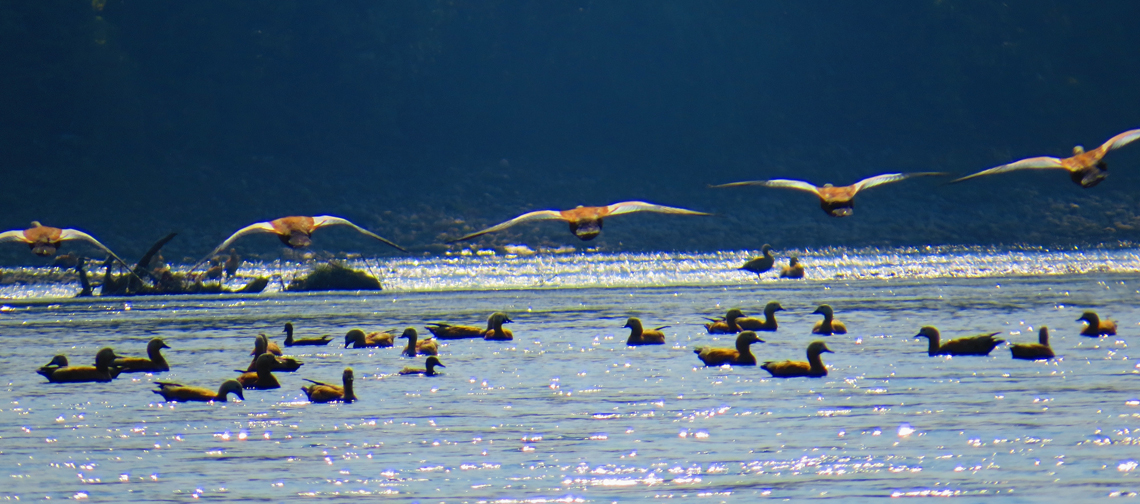
CHITWAN, Jan 12: On Wednesday afternoon, after seven hours of boating from Sikhrauli to Amaltari of Nawalparasi district, I chanced upon an enchanting view of colorful and beautiful birds along the Narayani River in Chitwan National Park (CNP). The Park is indeed a paradise for bird lovers as exotic birds from all over Asia visit it. But, not many tourists take this route.
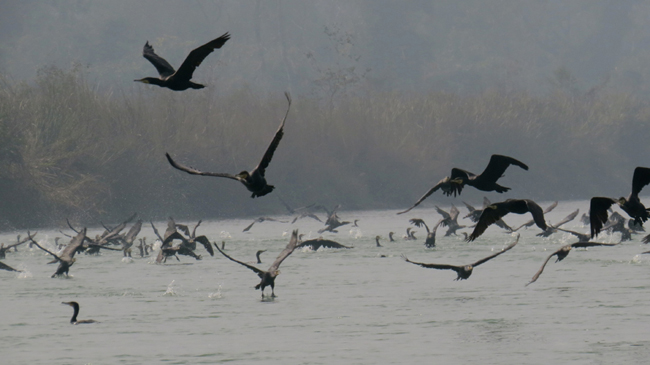
This is the time for completing the census of aquatic birds for the Asian countries. As the Narayani River is home to various species of aquatic birds, a team led by Ornithologist BB Chaudhary spent their day in the boat-ride. Chaudhary said, “We have been counting aquatic birds since 1987. We acknowledged hundreds of birds chirping and flapping their wings in our journey from Sinkhrauli to Amaltari. The chirpings of birds and the flapping of their wings accentuated the environment with bliss.A Himalayan species of ducks reaches Nepal, crossing the Himalayas, in search of food; aquatic animals also migrate from one place to the other. Birds and animals are found in abundance at places where fish and algae are found in large quantity.

At a place along the Narayani River, Chaudhari had spotted around 27 gharials and crocodiles 20 years ago; now we could hardly see one. This means that pollution and other human activities have affected life in the aquatic habitats. Due to unavailability of food, hardly any marine animals can be spotted in places where once they were found in abundance.
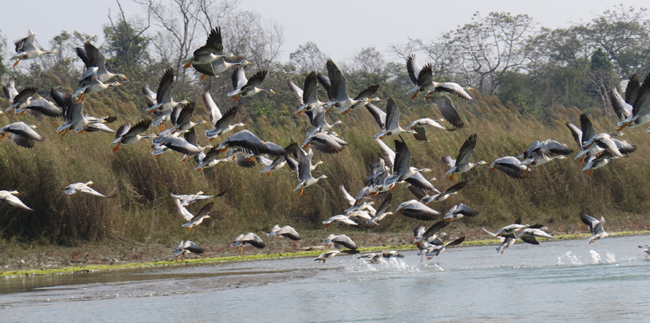
Chaudhary claimed that they were able to find around 111 species of aquatic birds around rivers and swamps in the past but of late, only 50/55 species of birds have been seen in the area. During our boat-ride, we had expected to find around 35 to 45 species of aquatic birds but could only spot 31.
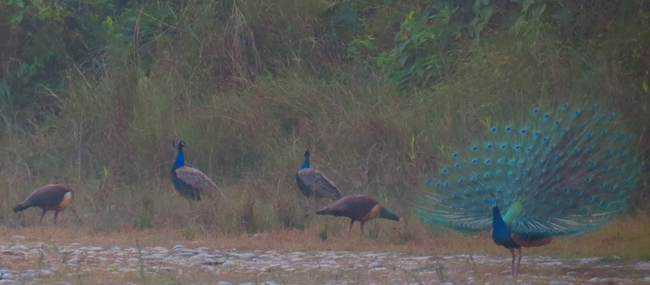 Chaudhary claimed that the pollution and increasing population and industries are a threat to the existence of aquatic birds. Because of pollution, it is hard for these birds to find food in the water and therefore, they migrate to other places in search of food. If nothing is done to control pollution, such problems are bound to increase in the future.
Chaudhary claimed that the pollution and increasing population and industries are a threat to the existence of aquatic birds. Because of pollution, it is hard for these birds to find food in the water and therefore, they migrate to other places in search of food. If nothing is done to control pollution, such problems are bound to increase in the future.
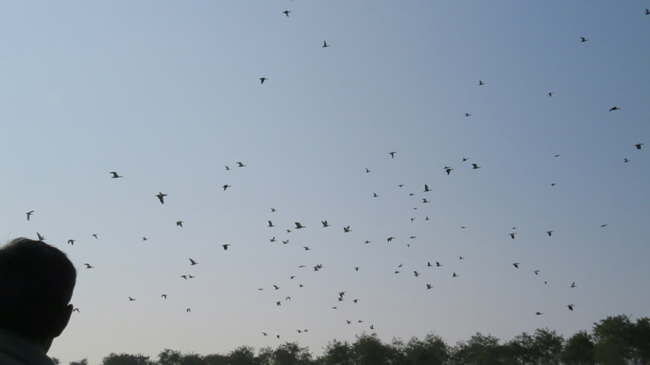
You May Like This
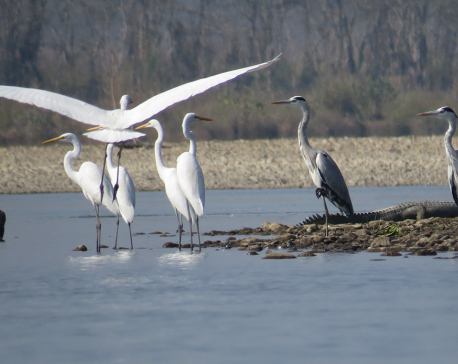
Migratory birds on shores of Rapti River (Photo feature)
CHITWAN, Jan14: During winter, different species of birds migrate to Nepal. Among them most of the species are winter water birds... Read More...

RAP organizes photo exhibition (photo feature)
KATHMANDU, March 8: Rural Access Program (RAP) has organized a photo exhibition titled Women and RAP on the occasion of... Read More...
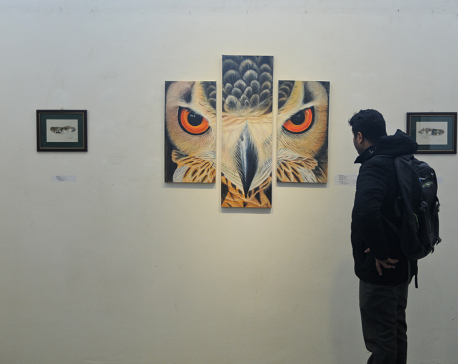
Exhibition on Nepal's birds underway at Nepal Art Council (with photo feature)
KATHMANDU, Jan 4: The 'Birds of Nepal: The Art of Hira Lal Dangol and His Family Legacy', a ten-day exhibition... Read More...




Just In
- MoHP cautions docs working in govt hospitals not to work in private ones
- Over 400,000 tourists visited Mustang by road last year
- 19 hydropower projects to be showcased at investment summit
- Global oil and gold prices surge as Israel retaliates against Iran
- Sajha Yatayat cancels CEO appointment process for lack of candidates
- Govt padlocks Nepal Scouts’ property illegally occupied by NC lawmaker Deepak Khadka
- FWEAN meets with President Paudel to solicit support for women entrepreneurship
- Koshi provincial assembly passes resolution motion calling for special session by majority votes







_20220508065243.jpg)






Leave A Comment